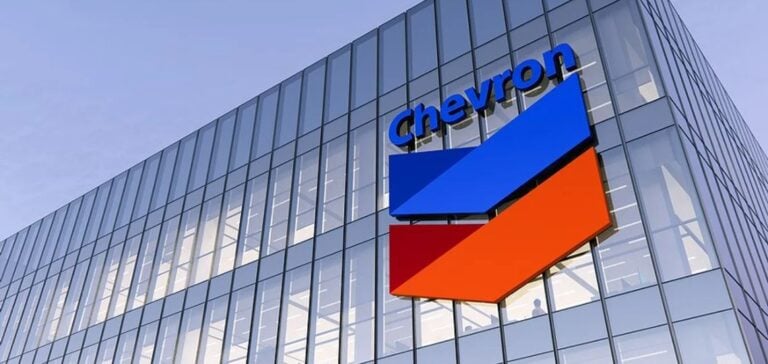The recent announcement of Chevron’s involvement in natural gas exploration off the Greek coast marks a significant step for the European energy sector. The Greek Minister of Energy and Environment, Theodoros Skylakakis, confirmed that the American multinational had officially submitted and had its request approved for collaboration on these strategic projects. The targeted areas include the Ionian Sea and regions southwest of Crete, identified as rich in hydrocarbon potential.
A strategic move for Chevron
Chevron’s entry into these projects is no coincidence. The Eastern Mediterranean basin has become a strategic region for natural gas exploration, primarily due to its proximity to European markets and the growing demand for diversified energy sources. Chevron, with its strong expertise in large-scale offshore projects, views this initiative as an opportunity to strengthen its influence in Europe while contributing to the European Union’s energy independence goals.
Beyond economic prospects, Chevron brings advanced drilling technologies and proven environmental management capabilities. These assets could play a crucial role in addressing the challenges posed by such projects.
A controversial project
However, this expansion is not without controversy. The identified exploration zones are located near a marine park in the Ionian Sea, a region known for its exceptional biodiversity. Environmental organizations have expressed concerns about the potential impact of drilling activities on marine and terrestrial ecosystems, highlighting the risk of irreversible damage in an ecologically significant area.
In response to these concerns, the Greek government announced significant adjustments to its energy program. Certain sensitive areas have been excluded from exploration projects, including a small oil deposit near the port village of Katakolo. These measures aim to balance the country’s economic ambitions with its environmental commitments.
Greece’s growing role in European energy
Through these initiatives, Greece aims to position itself as a key player in natural gas production and distribution in Europe. Currently reliant on imports for a large portion of its energy needs, Greece sees hydrocarbon exploration as a step toward greater energy autonomy. This strategy also aligns with European priorities to diversify energy supplies amid geopolitical instability.
Natural gas, considered a transitional energy source, plays a central role in these efforts. By increasing its local production, Greece could not only reduce its dependency on imports but also contribute to regional energy security while meeting the growing demand for cleaner energy sources.
Chevron and Greece’s prospects
According to Minister Skylakakis, the calls for bids and environmental studies for these projects are expected to be finalized in the coming days. This could accelerate exploration work, with Chevron as a key player. The American company will, however, have to operate within a strict regulatory framework and meet high environmental expectations.
For Greece, this project represents a major opportunity for economic growth and alignment with European energy priorities. However, it also underscores the need to balance industrial development with ecosystem preservation.






















